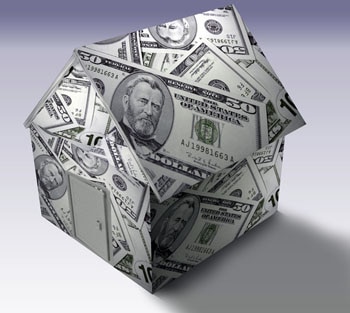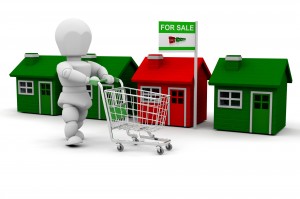When the options exist, choosing energy efficient new homes makes sense on significant levels, from better indoor comfort, lower overhead costs, and increased durability. Whether the home carries an Energy-Star rating or meets local or national guidelines for exceptional efficiency, choosing a recognizably efficient home increases the quality of the home and its long-term investment potential.

Lower Energy Bills
The U.S. Environmental Protection Agency’s (EPAs) reports that a new home with the Energy Star designation may use 30 percent less energy than an equivalent new home that’s not built to the same rigorous standards. In order to achieve this certification, the EPA requires that the home must meet these standards:
- Specific requirements for insulation throughout the structure, including windows.
- Low rates of air infiltration.
- An EPA-approved HVAC system that meets the Energy Star programs minimum efficiency standards. The specific efficiency ratings depend on the climate in which the home is located.
- Meets the Energy Star guidelines for the HVAC (heating, ventilation, and air conditioning) system installation.
- Energy Star qualified appliances and lighting.
- Plumbing system that meets the EPA’s requirements for water conservation and efficient water heating.
Combined, these factors reduce energy consumption substantially. The HVAC system, in particular, is crucial, since the typical homeowner spends approximately half the energy budget on keeping the home at a comfortable temperature year-round. A well-insulated home with low rates of air infiltration cuts the amount of conditioning needed, further reducing energy consumption.
Better Indoor Comfort
Low rates of air infiltration, adequate insulation and an Energy Star HVAC installation assure even comfort throughout the home. The builder who follows these practices must account for the physical factors that influence indoor comfort, compensating for solar exposure and balancing the distribution of conditioned air throughout.
Improved Health
Although it’s not a program requirement for a green home by the EPA’s standards, most builders who intentionally build green new homes take extra steps to cut down on the harmful emissions found in new construction materials. Volatile organic compounds (VOCs) are a byproduct of some kinds of paint, flooring, and cabinetry. VOCs pollute indoor air, causing mild to severe physical reactions that can have long term consequences.
Reliability
Since a green home has appliances that meet the Energy Star’s guidelines, homebuyers can expect the appliances to be more reliable. The engineering and technology that makes appliances more efficient also contributes to their durability. A green home uses upgraded construction techniques that also reduce normal maintenance over time. Installing insulation properly and limiting air leakage both keep moisture problems at a minimum. Moisture and water damage can be the root of many serious upkeep issues over time.
Financing
Lenders can make energy efficient mortgages (EEMs) that have more favorable financing terms than other types. The lender will treat the monthly energy savings as income that benefits home purchasers in ways unique to the type of mortgage being generated. An EEM for a conventional loan will allow the buyer to qualify for a higher loan amount, while the FHA loan limit for the home can be raised above the regional ceiling.
Better Resale Potential
While it’s a delayed benefit, an energy efficient home is likely to appreciate more and sell faster. The National Association of Homebuilders (NAHB) reports that over 90 percent of potential homebuyers state that they would be willing to pay more for a home that has an energy efficient designation or efficient features, including windows and appliances.
Time on market for a resale home and its appreciation rate depend on a host of variables, but selecting energy efficient new homes immediately improves the future resale potential because they offer the characteristics that the vast majority of shoppers want. Given all the advantages of choosing higher efficiency from the start promises and almost always delivers a higher quality and more comfortable home.
Christine is the Content Marketing Coordinator for Homes.com. She's a small town girl at heart, who currently lives in Norfolk, VA with her husband and their fur baby. When she's not working, she enjoys cooking, decorating, traveling, and binge watching Netflix. As a proud Virginia Tech alum, she also loves cheering on the Hokies!

















